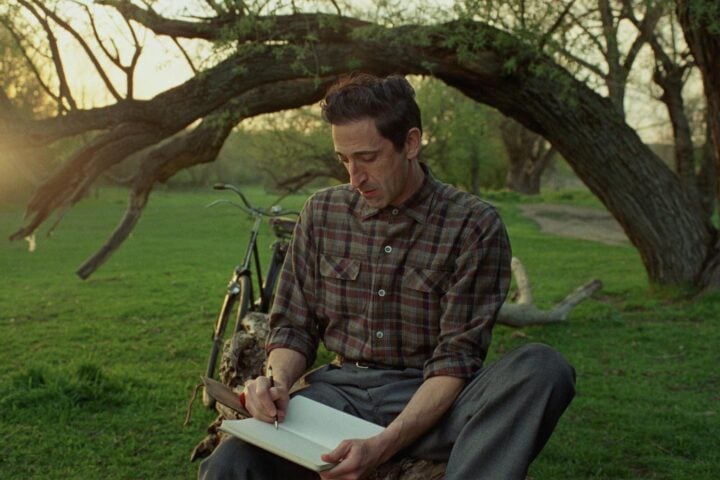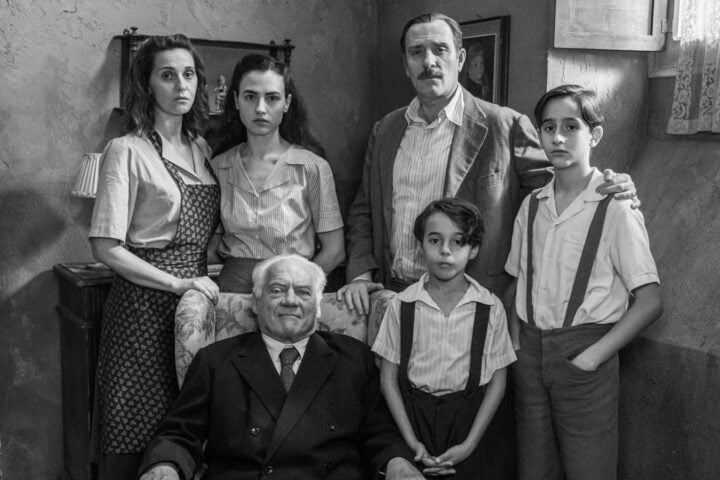Given how incoherent, as a collective statement, the last decade’s worth of best pictures have been, it’s hard not to indulge in “humanities major, sociology minor” thought exercises by the time we get to predicting this category. To boot, two years ago we said this: “For far too many award bloggers, the increasingly erratic Oscar outcomes are less a reflection of the continually diminished status of movies in the pop-cultural conversation and more a testament to our all-encompassing culture wars coming home to roost.” Their inevitable conclusion? “That Academy voters are so inextricably tied up in quintessentially American identity politics that they can no longer be trusted to serve as barometers of taste.”
Ah, simpler times. With each passing year it gets harder to deny that to truly engage in Oscar prognostication requires a bit of whistling past the graveyard, as it were. And given that those culture wars are now frozen in a grim détente, if not outright surrender, trying to “make sense” of an organization that lauds Nomadland one year and CODA the next is probably the least of anyone’s concerns. In that spirit, we won’t prolong this.
Because we’re in the aftermath of back-to-back Oscar seasons that were over almost before they began—Everything Everywhere All At Once was perhaps a slightly less preordained juggernaut than Oppenheimer clearly was, but neither broke a sweat over their closest competitors—the “winds” of this year’s race can’t help but feel a bit more like a vacuum at the top, and one exacerbated by the almost-instantaneous evaporation of Emilia Pérez’s support.
Instead, we have the sort of post-political best picture showdown that the most reactionary of pundits have been clamoring for since, well, at least Warren Beatty was handed the wrong envelope. It’s a face-off between two broadly liked, arguably old-fashioned propositions, both of which could be said to be the “type of film Hollywood has forgotten how to make.”
In one corner is Edward Berger’s red meat mid-sterpiece Conclave, built upon the time-honored foundation of three-act screenwriting and patriarchy, the latter of which the film itself acknowledges has reached a dead end but only in the least threatening context imaginable. In the other is Sean Baker’s Anora, which grabs John Cassavetes’s baton effortlessly, to the great satisfaction of everyone still carrying the torch for New Hollywood, and also harkens back to the era where playing a hooker was the surest path to a best actress nomination.
Commensurate with their shared soft-frontrunner status, each film has amassed a quieter, more unassuming winner profile than we’re used to in these all-or-nothing times. Anora snared underdog wins with PGA, DGA, and WGA, whereas Conclave made off with the top SAG and BAFTA prizes. As Ed already mentioned, he went into awards season thinking this was probably Anora’s to lose even before the guilds started weighing in. In my case, squaring the circle of AMPAS’s broadly international-minded but still provincially industry-focused agenda got a lot easier the moment it was announced that Anora would be entering the Criterion Collection.
Will Win: Anora
Could Win: Conclave
Should Win: The Brutalist
Since 2001, we've brought you uncompromising, candid takes on the world of film, music, television, video games, theater, and more. Independently owned and operated publications like Slant have been hit hard in recent years, but we’re committed to keeping our content free and accessible—meaning no paywalls or fees.
If you like what we do, please consider subscribing to our Patreon or making a donation.






